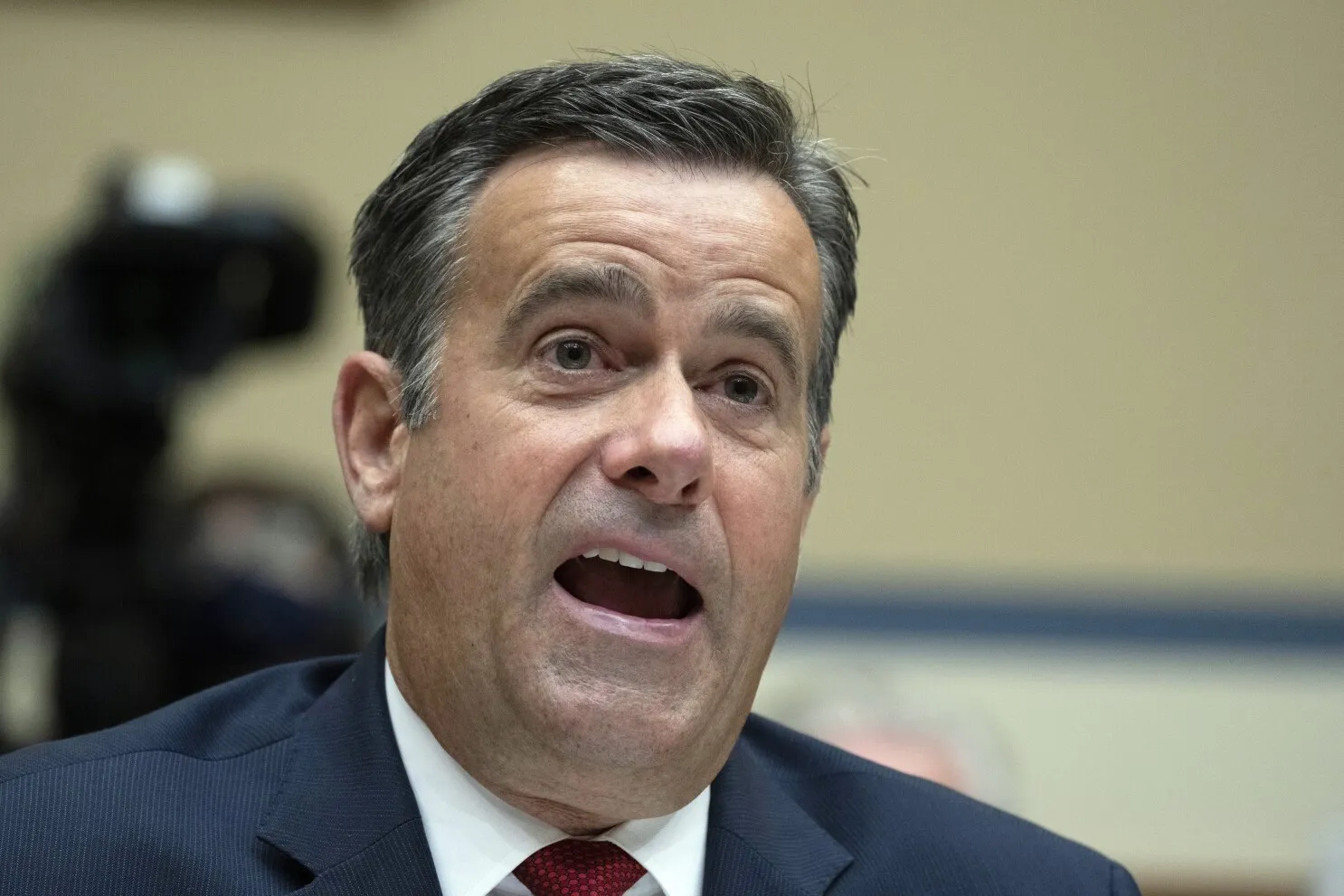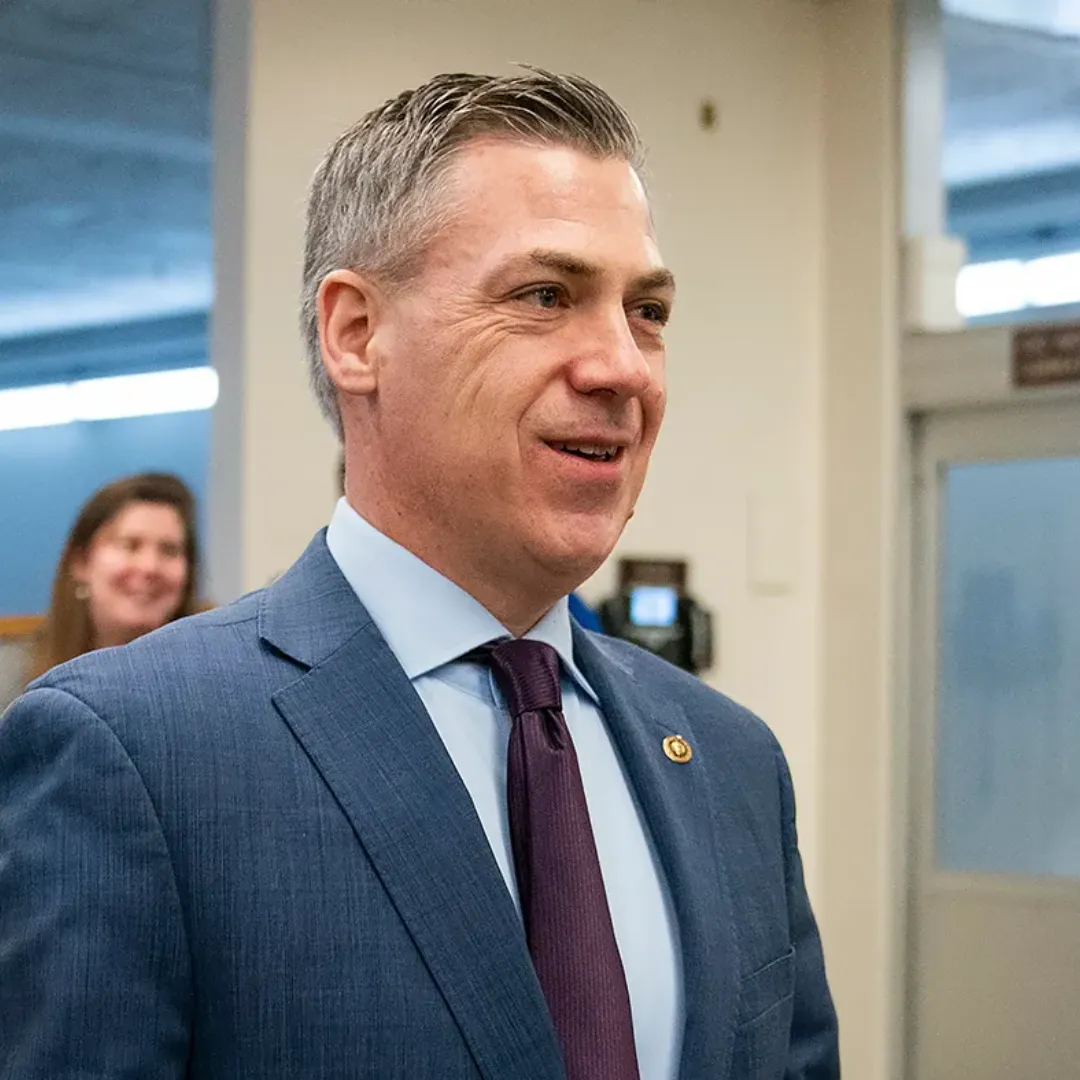A brewing scandal is gripping Washington as Senator Amy Klobuchar (D-Minn.) and other key political figures react to the leak of sensitive U.S. military plans. The leak involves a Signal group chat that included top officials from the Trump administration and a journalist, revealing detailed plans to attack Houthi rebels in Yemen.
The leak has raised serious concerns about national security, the safety of American service members, and the damage to U.S. relationships with key allies, particularly Israel. Klobuchar, who has been vocal in her criticism, recently appeared on MSNBC’s “Jen Psaki Show” to weigh in on the ongoing controversy.
The leaked documents have not only compromised intelligence operations but also placed U.S. military personnel and foreign relationships at risk. The leak was uncovered after The Atlantic Editor-in-Chief, Jeffrey Goldberg, revealed that he had been added to the Signal chat.
This revelation has sparked outrage, especially as key figures within the Trump administration, including Defense Secretary Pete Hegseth and National Security Adviser Mike Waltz, are implicated in the scandal.
As the story develops, the implications of this leak are wide-ranging. With details about the timing, location, and weaponry of the planned attack shared via the encrypted messaging app, intelligence operations with Israel and other allies are jeopardized.
The scandal highlights ongoing vulnerabilities within the U.S. government when it comes to protecting sensitive information and underscores the fragile nature of international intelligence-sharing relationships.
The leak itself has generated widespread concern among both lawmakers and intelligence officials. It centers around a private Signal group chat, where U.S. officials, including members of the Trump administration, discussed plans to target Houthi rebels in Yemen.
This private communication, which should have been strictly classified, was inadvertently made public, creating a breach of national security.
The contents of the group chat were first revealed when Jeffrey Goldberg, Editor-in-Chief of The Atlantic, disclosed that he had been added to the group. This was a moment that shifted the attention of the political world onto the contents of the chat, exposing sensitive military plans in the process.

At the heart of the leak is the fact that military operations intended to be covert were made public, which could lead to disastrous consequences for both the U.S. military and its foreign intelligence relationships.
One of the key concerns raised by Klobuchar and other lawmakers is the potential risk to American service members. With the leak, enemies of the U.S. now have access to critical operational details, including the timing, location, and weaponry involved in the planned attacks on the Houthis.
This level of exposure not only puts American lives at risk but also jeopardizes the safety of those providing critical intelligence, such as human sources working with U.S. allies.
Furthermore, the leak compromised intelligence sharing between the U.S. and its international allies, particularly Israel. The leaked documents detailed how U.S. intelligence gathered for targeting the Houthi rebels had been provided by Israeli sources.
The compromise of such an operation puts a strain on the U.S.-Israel intelligence relationship, one of the most crucial in global geopolitics.
Senator Klobuchar has been one of the most outspoken critics of the leak. In her recent appearance on MSNBC’s “Jen Psaki Show,” she laid out the serious consequences of the breach.
Klobuchar emphasized the immense danger the leak posed not just to U.S. military personnel but also to the nation’s broader intelligence network. "We’re literally putting American service members at risk and also endangering our intelligence relationship with others," she said, underscoring the far-reaching ramifications of the leak.
Klobuchar highlighted that Israel, a key U.S. ally, was "incredibly angry" about the leak, with Israeli officials publicly voicing their frustration at the damage done to their security.
She referenced statements made by Senator Mark Warner (D-Va.), the ranking member of the Senate Intelligence Committee, who had made it clear that Israel was not just angry but deeply concerned about the leak's impact on the fragile relationship between the two countries.
"We have to know what has happened, what they’ve put at risk for our allies’ intelligence, our own intelligence, our service members," Klobuchar said. This remark points to the central question of the scandal: what exactly has been compromised, and what are the long-term consequences for the U.S. and its allies?

Klobuchar also warned about the future risks to intelligence-sharing. If the U.S. continues to mishandle sensitive information in this way, she suggested, future allies might be hesitant to share intelligence with the U.S. for fear of further leaks. The growing mistrust could have severe implications for U.S. national security, especially as it pertains to ongoing military operations and counterterrorism efforts.
As the scandal unfolds, many are focusing on the role of senior Trump administration officials who were involved in the Signal chat. Defense Secretary Pete Hegseth has been particularly vocal in denying that any military plans were shared via Signal.
However, a second round of screenshots reportedly contradicted his denial, revealing that he had indeed shared details about the timing, location, and weapons involved in the planned attack.
Hegseth’s actions have sparked outrage, as they not only violated confidentiality protocols but also exposed critical military operations. However, it is not just Hegseth who is under scrutiny.
National Security Adviser Mike Waltz, whose messages in the Signal chat were also made public, has been privately criticized by Israeli officials for his role in the leak. The fact that these messages were exposed, despite being intended for a secure channel, suggests a systemic failure in safeguarding classified information.
The leaked messages also involved a human source who had provided intelligence to the Israelis. This source, who played a vital role in the targeting of Houthi officials, is now at risk.
The exposure of this individual’s identity could lead to the termination of their role as an informant, which would further cripple U.S. intelligence efforts in the region.
One of the most alarming consequences of the Signal leak is the strain it places on U.S.-Israel relations. Israel is one of the U.S.’s closest allies in the Middle East, particularly when it comes to intelligence sharing.
The Israeli government has been vocal in expressing its anger over the breach, particularly since it compromised the security of a human asset. The Israeli intelligence community works closely with the U.S. on various covert operations, and such a leak puts all of those efforts in jeopardy.

The leaked plans were based on intelligence that Israel had provided to the U.S. for targeting Houthi rebels, an effort that has been crucial for U.S. military strategy in the region. By revealing this information, the U.S. risks alienating one of its most important allies, and this breach may have lasting consequences for the collaboration between the two countries on intelligence and military operations.
As the scandal continues to unfold, there has been a bipartisan call for investigations into the leak. Klobuchar, while acknowledging that some of her Republican colleagues have called for accountability, has pointed out that many key Trump administration officials, including those involved in the breach, have a history of mishandling classified information.
The focus now shifts to understanding how such sensitive information was leaked in the first place and whether there was any intentional misconduct involved.
Klobuchar has been clear in calling for a thorough investigation into what was compromised and what damage has been done to national security. She is particularly concerned with ensuring that those responsible for the leak are held accountable and that steps are taken to prevent future breaches.
The Signal leak scandal is one of the most significant national security breaches in recent memory. The leak of sensitive military plans not only endangers American service members but also risks straining U.S. relationships with key allies like Israel.
As the investigation into the leak unfolds, questions remain about how this breach happened, who is to blame, and what the long-term consequences will be for U.S. intelligence and military operations.
The fallout from this leak will undoubtedly be felt for years to come. As Klobuchar and others have pointed out, the damage caused by this breach is not just about the immediate fallout but about the long-term ramifications for U.S. credibility and its ability to maintain intelligence relationships with key allies.
The next steps will determine whether the U.S. can recover from this scandal or whether it will become yet another example of the vulnerabilities that continue to plague the government’s handling of sensitive information.




